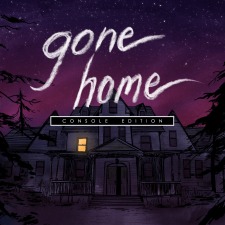 Developer: The Fullbright Company
Developer: The Fullbright Company
First Release: 15th August, 2013
Version Played: PlayStation 4
Length: Short
Available: PS Store US | PS Store UK | Xbox One | Steam
Katie returns home after touring Europe, only to find the house is empty. She has to piece together where everyone has gone from the clues left behind.
Though Katie is the character controlled by the player, this is primarily about her sister Sam. Finding notes and other objects triggers journal entries, written as though they were letters to Katie. Sam is a teenaged lesbian in the 1990s, and her story touches on dealing with her parents and finding her place in the world. In addition, Katie finds out more about her parents and the previous owner of the house.
There aren’t really any puzzles in the game, as it’s focused on story and exploration. It doesn’t get more complicated than finding a combination to open a lock.
I enjoyed the story. The voice acting was good, and it avoided a lot of the negative tropes that come with lesbian characters. I was a bit surprised it wasn’t a horror game, based on the way it’d been described to me. This is firmly based in the reality of family relationships.
The atmosphere in the house is well done. Floorboards creak whilst a storm rages outside. These things are on random timers, giving them an organic feel. There’s attention to detail with the rooms, making sure they have the expected everyday objects. Each family member has their own style, which shows in the things they own. That said, the realism of the house also means there isn’t anything very surprising around the corner.
I grew up in the 1990s, but in a very different environment to Sam. The whole angle of the feminist punk movement was new to me. The game has music (on cassettes that can be played), fanzines and badges for the bands. The commentary mode includes some thoughts from Corin Tucker, the singer from Heavens to Betsy. There’s a lot of interesting stuff in the commentary in general, so it’s worth playing a second time with it activated.
Accessibility is reasonable. The game has options to remove head movement, and has a crosshair in the centre by default. This helps reduce motion sickness issues. Subtitles and text overlays for notes are also options. There are a few flickering lights in places, but the flickers are short and don’t create a strong strobe effect.
This is an interesting game about growing up and relationships. The emotional narrative and attention to detail stood out as strengths. The short playtime could be an issue for gamers on a budget. There are themes of anti-gay prejudice in the main storyline, and child abuse is implied in the side narratives, though none of that is very graphic.